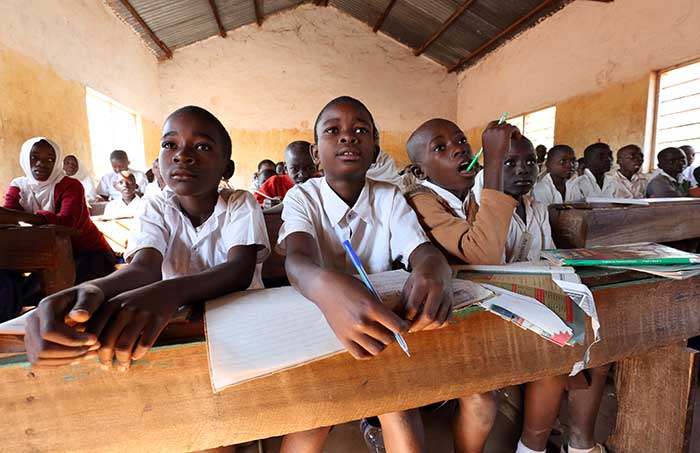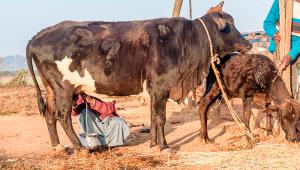web_schoolafrica_shutterstock_315777626.jpg

Children in school
However the figures showed that a “tragic” number of women still die in childbirth and levels of learning in primary schools remain very low.
Kieth Hansen, World Bank vice president for human development, noted that while the country has achieved near-universal primary school enrolment, one in four children still cannot read to a good standard.
Teacher knowledge also remains a “serious issue”, the bank said, with only one in five mastering the curriculum they teach.
Teachers are however turning up at school, with absenteeism falling by 40% – the equivalent of 24 more days teaching every year.
Teacher-pupil ratios have in turn become more manageable, dropping by 20% across the country. In urban schools, however, they remain very high.
But the bank noted that only 37% of those teachers who were in school were still not in the classroom and teaching, pointing to “school leadership and management issues”.
Health worker absenteeism (14%) has also fallen below that of Uganda (49%) and Kenya (28%), but Tanzania’s real health service success is in infrastructure, which has improved “rapidly”, especially in rural areas.
In 2010, only 5% of rural health facilities in the country had clean water, power and good sanitation, but this had increased to 36% by 2014.
However, the World Bank noted again that challenges remain – namely getting more health workers to rural areas, which only have 9% of the country’s doctors and 28% of its health force – and boosting their capacity.
Data shows that currently, three out of five health workers cannot identify severe dehydration, a fatal condition for children.
Nevertheless, Bella Bird, World Bank country director for Tanzania, Malawi, Somalia and Burundi, stressed that the figures are beginning to show positive results in service delivery improvements.
She added that looking at the “black box” of service delivery that lies between expenditure on the one hand and lagging human development outcomes on the other delivers evidence to help “guide the results-orientated solutions of tomorrow”.
Meanwhile, also last week, the bank approved $20m for the integration of long-term refugees in Zambia, which currently hosts more than 52,000 people who fled violence in Angola, Burundi, Sudan, Uganda, Rwanda and the Democratic Republic of Congo.













